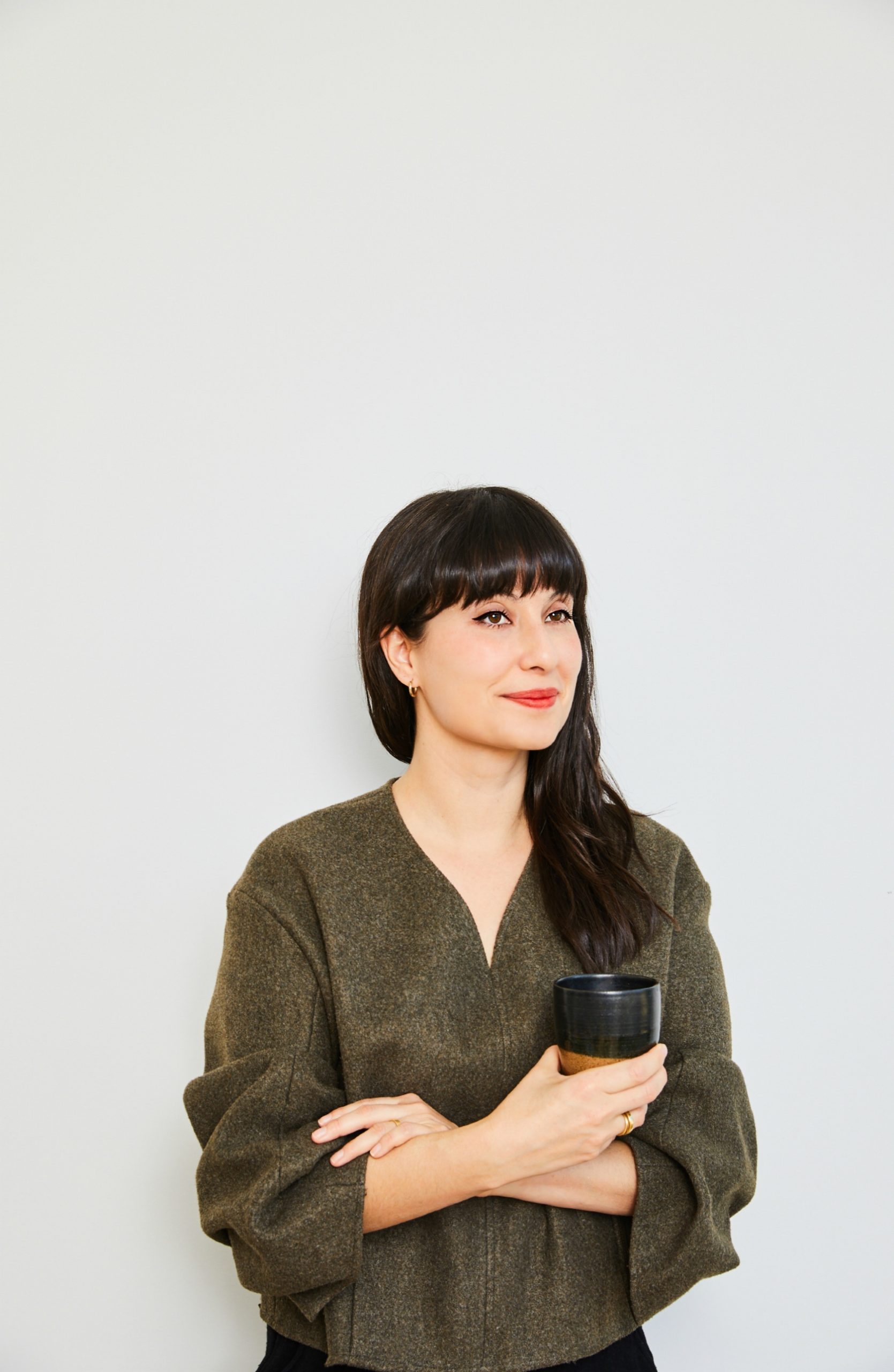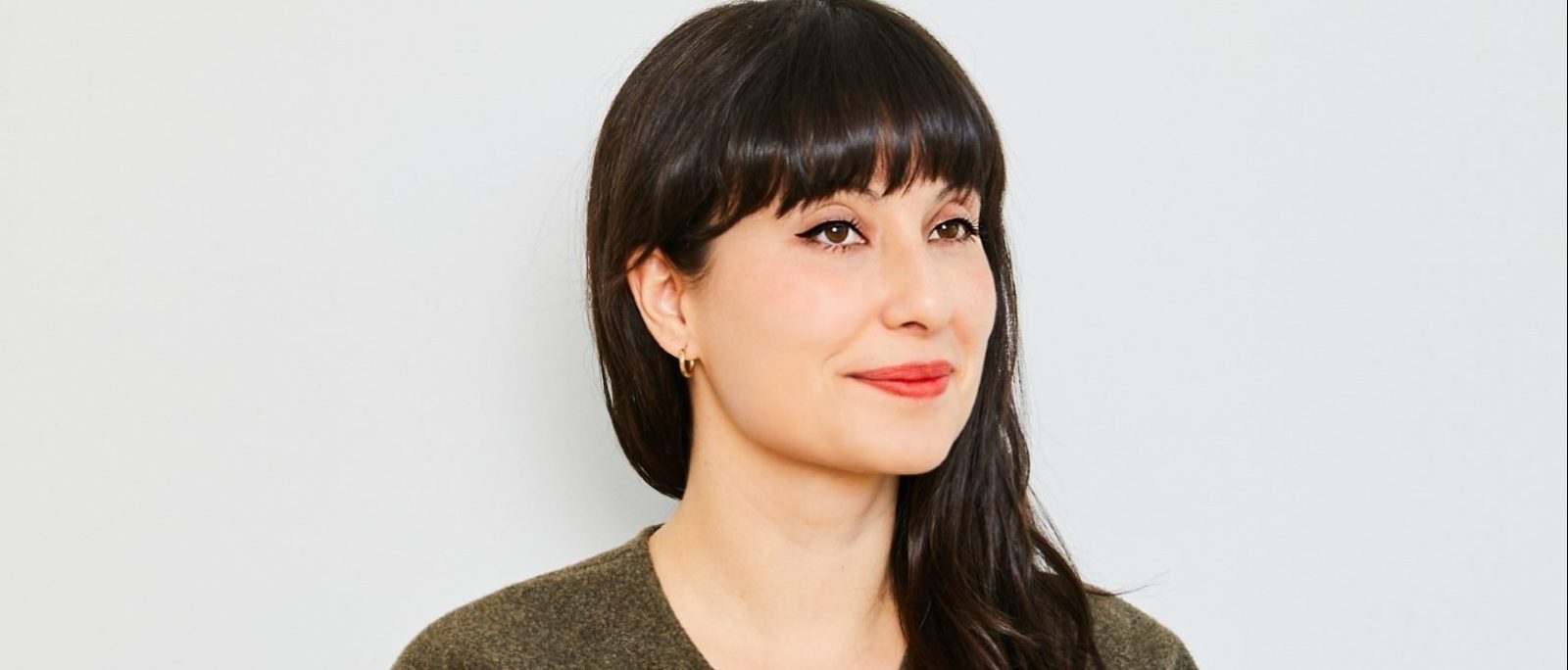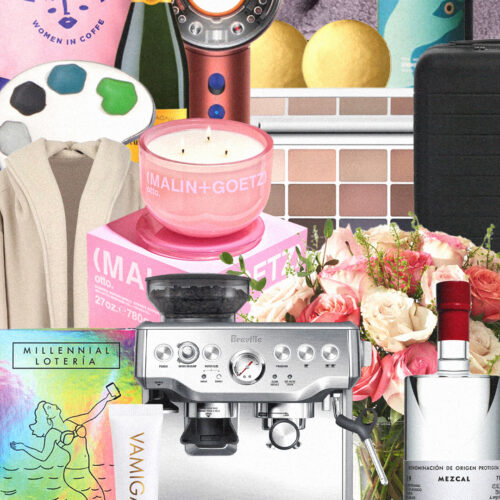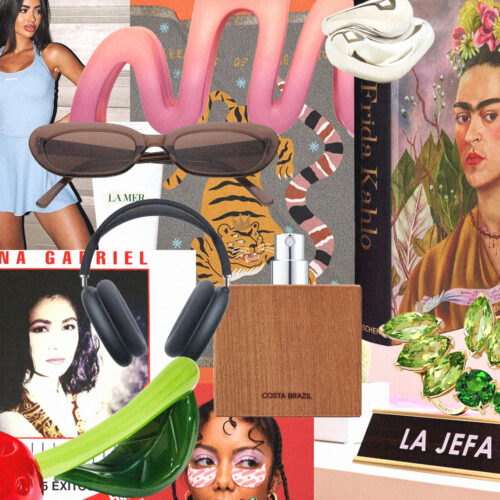Born in New Mexico and raised in Sacramento, California, Éva Goicochea knew from an early age that she wanted her work to impact people’s lives for the better. Starting her career as a legislative aide, she never imagined that her journey would lead her to start her own brand in the sexual-wellness space. This is what makes maude, Éva’s modern and inclusive approach to engendering better intimacy, so compelling. With beautifully designed products – like lubricants in minimalist, amber-colored bottles – maude suggests to consumers of all genders that sexual health is something to embrace, rather than feel to shame about. We sat down to talk about how her unique background and personal experiences inspired her business, the ups and downs of being a female Latinx entrepreneur, and her vision for the sexual wellness industry.
How do you consider your cultural background and what was your experience growing up sixth-generation New Mexican?
My experience was interesting. My dad’s family—Spanish-American—converted to Mormonism in my great-grandfather’s generation and my mother’s side—Mexican-American—is Catholic while both of my parents are spiritual nonbelievers. There was always a glaring paradox between grandparents who were religious and traditional while my parents were forward-thinking artists.
My mom gave me a copy of Our Bodies, Our Selves when I was young, and she would talk to me about sexual health from an early age. Everything was biologically factual and spoken about in this normalized, de-stigmatized way. Meanwhile, you go to grandma’s house and it’s all about abstinence until marriage with no discussion beforehand. I’m sure that’s many people’s experiences within Latino households.
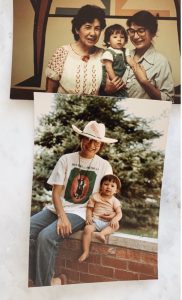
Éva with her mother and grandmother; Éva with her mother.
Did your friends have similar or different experiences than you?
I grew up in New Mexico until I was 9 or 10 and then moved to Sacramento. In neither place was I surrounded by one type of friend, and I didn’t grow up in a hyper-Latino community. In fact, I had a fairly diverse set of friends—I think it was more about growing up with people who understood this multi-generational take on talking about the subject. Then I went to Catholic school for high school and we prayed seven times a day.
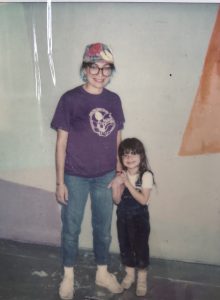
Éva with her mother.
How did sexual wellness play into your formal education, if at all? And did that influence your decision to start Maude?
In some ways, it did. I would say this idea that, especially in Catholic school, you are both explicitly and subversively taught that sex is sacred in this way that creates more compartmentalization than you might find in a “regular” high school. Then there is this thought that those who were sexually active were super brave or “out there,” which created this disconnect—and I think a lot of people have this experience—away from sex being simply human and everyone having it. Sex doesn’t make you not “you,” and having to fall into one camp or the other, so to speak, was the biggest challenge. There was always this concern and worry around reputation and I was always just like, “it’s really no big deal!” So, yes. It was around me and I was certainly always tried to champion and advocate for sex being thought of as a normal thing.
And that is a sentiment, perhaps, more indicative of the modern era. Do you see the tides around sex positivity shifting in this present moment?
Yes, absolutely. I am very excited that the broader personal care and beauty space has started to ask questions around sexual wellness playing a part in health, especially psychological health. With Covid, particularly, these questions have come up a lot – what does intimacy mean? How is it affecting you if you are alone during the pandemic versus with a partner? I think that sentiment has changed for the better and it’s a conversation that feels more integrated, which I see as a sign of the times.
What was the moment, or the moments, that brought you to this place where you started a company that promoted this ethos both through the creation of products and new narratives?
A big piece of my childhood in New Mexico was being around teenage pregnancy in my own family. It was one of those things that you didn’t talk about, but you saw, which really highlighted the disparity in terms of health access. I became a legislative aide in healthcare during my twenties and then went to work for brands. I saw the application of narrative and commodification of products in this start-up, DTC (direct-to-consumer) ecosystem and thought, what do I want to do every day? What do I care about? It came down to changing people’s lives for the better, especially when it comes to cultural and social impact. To me, there is not a better category. Having that childhood and then my adulthood around healthcare was critical to me thinking I could take it on.
In the corporate setting, I am the least likely to start a sexual wellness company, in some ways—I’m a pretty private person and I don’t talk publicly about my own sex life. I think I was meant to start this company to represent the sentiment that more people feel around fear, shame, and guilt while also wanting to be private and holistic about the approach.
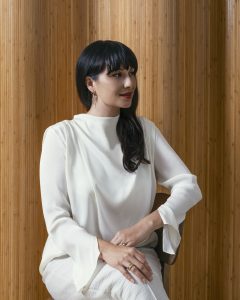
Éva Goicochea.
Did you always know you wanted to be an entrepreneur, or did you stumble onto this path because of your mission?
I think I was always entrepreneurial—I got my first job at 14. That said, when you grow up and you aren’t from, for instance, multi-generational entrepreneurism, starting a company doesn’t seem within easy reach. In my adulthood, I was surrounded by small-turned-medium businesses that grew over time, but that didn’t interest me—I was thinking much bigger. As I began to understand more about venture capital and that world, it became more apparent that it was possible to create a quickly-growing brand within this category—even if I didn’t exactly know how to get from A-to-B right away.
Was it difficult to navigate, having this sexual wellness company and entering the venture capital world, especially as a Latina woman (a category of person that has been historically excluded from funding)?
Though I’m 100% Latina, I wouldn’t say that most people who know what I am because I appear racially ambiguous—which is a whole other conversation around our own experience and diversity within a group of people. I didn’t have a lot of peers to turn to, and, especially since the category is not hyper-saturated, I wasn’t sure where exactly to go to share experience. I was also aware of tokenization, and I didn’t want to be tokenized as a fund’s “brown” or “female” investment. I wanted to be funded because maude should exist. It was a delicate line in terms of finding alignment with investors.
It’s kind of the double-edged sword of being one of “the firsts.” As for building a business in the sexual wellness space, did that have its own obstacles given any stigmas or privacy around the topic?
It did, but I don’t know if my experience was like that of others in the space. I think about the industry, and I think of “Trojan”—the legacy players—and decided we are just going to put one foot in front of the other and try to carve out a space for ourselves. That approach means my language in these conversations was always very big. “Here’s the condom industry, and nobody is doing anything new or exciting” – I feel that with sexual wellness there are many people who are saying “this is what we are doing over here” and they are so far away from where I want to be. I am thinking much further down the line, and so, I began to talk about it as if it was, not as if I was fighting for it. I started to encourage this idea that of course this is how sex should be.
Thank you so much for sitting down with us! My last question really is just, where do you see this going? What is your big vision?
We have a huge vision in that we want to be right up there with the legacy brands. We want to be a giant and change the industry for everyone, making it more empathetic and inclusive. Now, my very, very Catholic grandmother acknowledges what I do, and it makes her proud! If that doesn’t signify the tides changing, I don’t know what does.
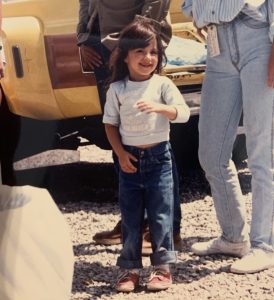
Éva as a young girl.
